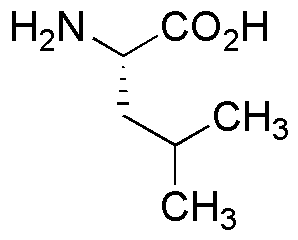L-Leucine, Non-animal origin is widely utilized in research focused on:
- Sports Nutrition: This essential amino acid is a key ingredient in protein supplements, helping athletes to enhance muscle recovery and growth after intense workouts.
- Dietary Supplements: Commonly found in vegan and vegetarian supplements, it supports muscle health and overall well-being, making it ideal for those following plant-based diets.
- Pharmaceuticals: Used in formulations for muscle-wasting diseases, it aids in preserving muscle mass and improving recovery in patients undergoing treatments like chemotherapy.
- Food Industry: Incorporated into various food products, L-Leucine enhances protein content and nutritional value, appealing to health-conscious consumers.
- Animal Feed: As a non-animal origin source, it is increasingly used in livestock feed to promote growth and improve feed efficiency without animal-derived ingredients.
General Information
Properties
Safety and Regulations
Applications
L-Leucine, Non-animal origin is widely utilized in research focused on:
- Sports Nutrition: This essential amino acid is a key ingredient in protein supplements, helping athletes to enhance muscle recovery and growth after intense workouts.
- Dietary Supplements: Commonly found in vegan and vegetarian supplements, it supports muscle health and overall well-being, making it ideal for those following plant-based diets.
- Pharmaceuticals: Used in formulations for muscle-wasting diseases, it aids in preserving muscle mass and improving recovery in patients undergoing treatments like chemotherapy.
- Food Industry: Incorporated into various food products, L-Leucine enhances protein content and nutritional value, appealing to health-conscious consumers.
- Animal Feed: As a non-animal origin source, it is increasingly used in livestock feed to promote growth and improve feed efficiency without animal-derived ingredients.
Documents
Safety Data Sheets (SDS)
The SDS provides comprehensive safety information on handling, storage, and disposal of the product.
Product Specification (PS)
The PS provides a comprehensive breakdown of the product’s properties, including chemical composition, physical state, purity, and storage requirements. It also details acceptable quality ranges and the product's intended applications.
Certificates of Analysis (COA)
Search for Certificates of Analysis (COA) by entering the products Lot Number. Lot and Batch Numbers can be found on a product’s label following the words ‘Lot’ or ‘Batch’.
*Catalog Number
*Lot Number
Certificates Of Origin (COO)
This COO confirms the country where the product was manufactured, and also details the materials and components used in it and whether it is derived from natural, synthetic, or other specific sources. This certificate may be required for customs, trade, and regulatory compliance.
*Catalog Number
*Lot Number
Safety Data Sheets (SDS)
The SDS provides comprehensive safety information on handling, storage, and disposal of the product.
DownloadProduct Specification (PS)
The PS provides a comprehensive breakdown of the product’s properties, including chemical composition, physical state, purity, and storage requirements. It also details acceptable quality ranges and the product's intended applications.
DownloadCertificates of Analysis (COA)
Search for Certificates of Analysis (COA) by entering the products Lot Number. Lot and Batch Numbers can be found on a product’s label following the words ‘Lot’ or ‘Batch’.
*Catalog Number
*Lot Number
Certificates Of Origin (COO)
This COO confirms the country where the product was manufactured, and also details the materials and components used in it and whether it is derived from natural, synthetic, or other specific sources. This certificate may be required for customs, trade, and regulatory compliance.


